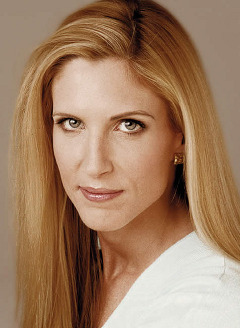Supporting gay marriage is to support the destruction of the family tree for children raised in gay households. So, in order to remain morally consistent, gay marriage supporters should follow these ten easy steps:
1. Pick one parent to erase from your life.
2. Make sure this person's name is stricken from your birth certificate.
3. Remove all references to this person and his/her family from your contact lists, email, phone records, photo albums, etc.
4. Locate a gay or lesbian to adopt you. Choose one that is the opposite sex as the parent you removed from your birth certificate. This will create the very same gay parenting arrangement you are advocating for future generations of children.
5. Have this person's name inserted into your birth certificate. Make sure you update any other records with this person's name, and the names of his/her family, such as insurance papers.
6. When your other parent objects, tell them to get over it. Tell them:
- "... a genetic connection is not sufficient to create parentage."
- "... a genetic connection is not a necessary component of parentage."
- "... gestation is not a sufficient connection to create parentage."
7. Never mention the other parent's name again or the names of their family members. Never tell your children about him/her or his/her family.
8. If your family members express concern, say this: "Since this is how future generations of kids raised in gay marriage households will feel, I thought I should be consistent and do in my own life what I was requiring to be done in the lives of future children. Besides, why do you care? This was MY decision and it has no bearing on you at all."
9. They may ask why you chose a person of the opposite sex of the one you erased, rather than the same sex. They may question the wisdon of going against what you were given at birth (two parents of opposite sexes, not same sexes). If so, you can repeat the above retorts. You can also say things like this:
"Gay marriage and gay parenting will strengthen marriage and families."
"Don't judge."
"What do you have against gay people?"
"Are you homophobic?"
"No H8."
If this exchange occurs on Facebook or another social media site, just type this:
=
That should stop all thought and silence your questioners.
10. If you feel no aversion at this thought exercise, if you feel it has merit and is something people should do, then, and only then, is your support for gay marriage morally consistent. I will still disagree with you. But I will at least know that you understand the ramifications of what you are advocating.
Thank you, Dr. Lopez at EnglishManif for this enlightening exercise.

